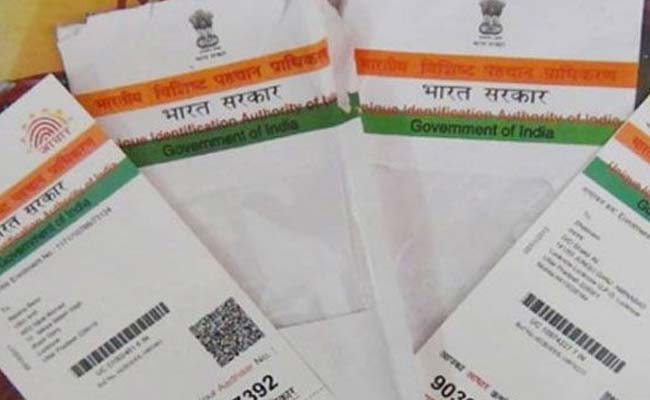Judicial scrutiny of Aadhaar is limited, Centre tells SC
New Delhi : The Central government on Wednesday told the Supreme Court that Aadhaar unique identification number is a policy decision in the larger interest of the state, and was put in place after expert inputs, thus the scope of judicial scrutiny into it was limited.

Citing the enormous benefits of the scheme, Attorney General K.K.Venugopal told five judge constitution bench of Chief Justice Dipak Misra, Justice A.K. Sikri, Justice A.M. Khanwilkar, Justice D.Y. Chandrachud and Justice Ashok Bhushan that it has helped in curbing the leakages in the disbursal of benefits under welfare schemes.
Telling the bench that the legitimate interest of the state or the larger public interest runs through the entire Aadhaar Act, he said that it has helped in dissipation of subsides covered under Section 7, preventing black money and money laundering by linking unique identification number with bank accounts.
The court was told that linking of Aadhaar with PAN has helped in checking evasion of tax and making its mandatory linking with SIM card has aided in preventing terrorism and protecting national security.
To buttress his arguments that similar steps were taken in other countries and were upheld by their courts, the Attorney General took the constitution bench through the judgments of the American Supreme Court which have upheld the fingerprint imaging for social security cards.
He cited 19 judgments of US top court as well as United Nations report “Leaving no one behind: Imperative of inclusive development” to drive home his point that collection of biometric data of the Aadhaar holders was not invasion of privacy or or means to surveliance.
At this Justice Sikri observed that the position taken by the European courts including by the German court was diametrically different to the position taken by US courts, and cautioned that it would be better not to refer to foreign court judgments as they may cause confusion.
The Attorney General on Tuesday (April 3) had pointed to tremendous efforts were put in to ensure that Aadhaar invades or impinges the privacy to the “minimum possible manner”.
“We have structured the law so that it satisfies the three requirements of the validity of a law – that it is fair, just and reasonable,” he said in the course of the hearing of a batch of petitions by former Karnataka High Court Judge K.S. Puttuswamy, Magsaysay awardee Shanta Sinha, feminist researcher Kalyani Sen Menon, social activist Aruna Roy, Nikhil De, Nachiket Udupa and others challenging the constitutional validity of the Aadhaar scheme on the touchstone of the fundamental right to privacy.
IANS





